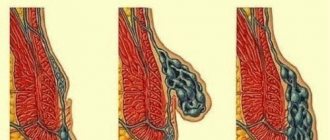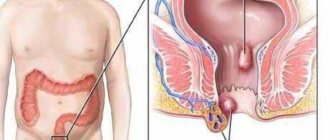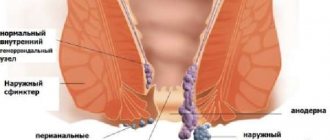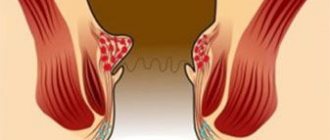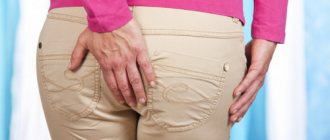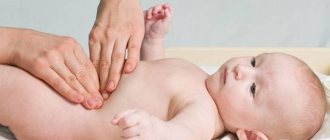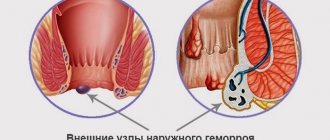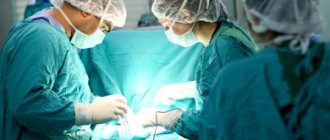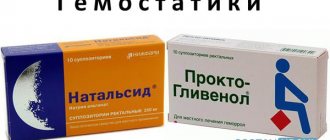What to do if hemorrhoids bleed during pregnancy? Such a symptom will undoubtedly frighten everyone, and especially the expectant mother. After all, during the period of bearing a child, a woman should be very attentive to her health, even a common runny nose can harm the baby and change the course of pregnancy. What can we say about such a serious problem as hemorrhoids with bleeding!
Why this extremely unpleasant disease so often occurs in women in an interesting position and how to behave in order to avoid it, we will not discuss in this article. Now it is important to get an answer to another question - how to treat hemorrhoids during pregnancy if they bleed? What medications are suitable, will traditional medicine help? And in what cases should you immediately consult a doctor? Readers will also receive useful tips on measures to prevent hemorrhoidal bleeding in the future.
Why do pregnant women suffer from hemorrhoids so often?
According to statistics, hemorrhoids overshadow pregnancy in 40% of cases. Why is this happening? As a rule, women have sedentary office work, the way home is spent sitting in public transport, housework is done on their feet and the long-awaited rest is again sitting in front of the TV or computer. Most of the time is spent in a sitting position. And over time, this situation can lead to the development of unpleasant diseases of blood vessels, joints, and so on. During pregnancy, the body's load on the blood vessels increases; the growing child puts pressure on all abdominal organs, intestines and veins passing through it. Therefore, a habitual lifestyle can provoke inflammation of the intestinal veins and the appearance of hemorrhoids. Unfortunately, worsening hemorrhoids very often accompany pregnancy.
Hemorrhoids - what kind of disease is this?
Hemorrhoids and pregnancy - a description of the disease. A well-known disease of the rectum that affects men and women equally. Pregnancy does not exclude hemorrhoids, but can provoke its occurrence. Even the word “hemorrhoids” has long been used in colloquial speech to mean troubles of any kind. Hemorrhoids are pathological changes in the intestinal veins. At some point, blood begins to stagnate in a certain section of the rectal vein and becomes deformed. The vein swells and turns into a lump, and inflammation develops in it. Such hemorrhoids are very painful. The act of defecation turns into a painful process.
Types of disease and its forms
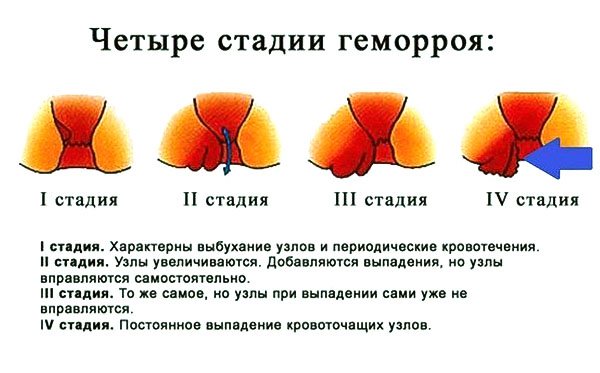
Hemorrhoids can not only be acquired. In medical practice, both acquired and congenital forms are found. There are also external and internal hemorrhoids based on the nature of the localization of the disease.
The most common type is chronic hemorrhoids. It is a process that either subsides or intensifies.
There are four stages of hemorrhoids:
- Stage one. Inflammation of the rectal mucosa, defecation is accompanied by the release of blood. When examining the rectum, hemorrhoids are visible. Patients experience discomfort during bowel movements.
- Stage two. Loss of nodes during bowel movements, itching and burning in the anus.
- Stage three. Pain, burning, itching. The nodes fall out after defecation and do not reset on their own. You have to straighten them by hand.
- Stage four. Requires immediate treatment. Prolapsed nodes cannot be set back, development of ulcers on the rectal mucosa, thrombosis.
Therapeutic measures
What to do if the disease appears during pregnancy? External hemorrhoids during pregnancy should be treated with extreme caution. Many components of medications cannot be used during this period. Some of them are prohibited in the first or second trimester. Preference is given to natural composition. In any case, the decision must be made by the doctor.
Medicines allowed during pregnancy:
- Suppositories or ointment Gepatrombin G. Narrows the area of edema and inflammation, reduces itching and burning. Relieves pain and strengthens the walls of blood vessels. Prevents the formation of blood clots. Treatment of hemorrhoids is allowed only from the second trimester.
- Relief. Ointment or suppositories promote rapid healing of wounds and cracks and resolve seals. The product quickly relieves pain.
- Natalsid. Damaged areas heal quickly, spasm and pain are reduced, and inflammation is eliminated. Increases local immunity of the rectal mucosa.
- Posterizan suppositories and ointment are approved for use not only during pregnancy, but also during breastfeeding. They contain E. coli cells and a hormonal component - hydrocortisone. The drug not only has an anti-inflammatory effect, but also increases the activity of the body's defense cells.
- Bezornil. The ointment has a natural base. Helps reduce the area of swelling, inflammation, stops bleeding and heals anal fissures.
- Fleming. The ointment reduces inflammation, eliminates itching and burning. Relieves cracks in the anal area.
- Detralex, Venarus, Phlebodia. If the condition is accompanied by severe pain and bleeding, then a decision may be made to take venotonic tablets. They give strength and elasticity to the walls of blood vessels and improve blood flow. But they should be taken with caution, since the drugs make changes to the entire circulatory system.
- Heparin ointment. The product, penetrating into the inflamed area, relieves swelling and inflammation, resolves bumps, eliminates itching and prevents the formation of blood clots. The benzacoin contained in the composition copes well with pain.
- Vishnevsky ointment. Prevents the development of inflammation, improves local blood circulation. Relieves swelling and pain, disinfects the damaged surface.
How to treat hemorrhoids if suppositories, tablets and ointments do not help? There are cases when conservative methods do not help get rid of the disease or alleviate the condition only for a short period of time.
In this case, surgical intervention is indicated. The main indication is prolapse of nodes or their thrombosis. The condition is dangerous because during childbirth there may be a rupture of the rectum or other serious complications.
Minimally invasive (gentle) methods of getting rid of hemorrhoids, allowed during pregnancy:
- Cryotherapy. During the procedure, the node is frozen with liquid nitrogen.
- Ligation. The stem of the cone is tightened with a special thin latex ring. As a result, the power to the node stops and it disappears.
- Sclerotherapy. A special substance is injected into the cavity of the hemorrhoidal node, which glues the plexuses and nutrition is stopped.
Causes of occurrence and exacerbation of the disease during pregnancy
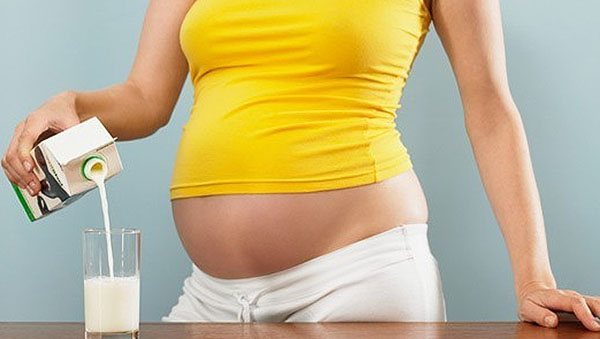
How do hemorrhoids behave if pregnancy occurs? The answer is clear: bad.
If a woman is already familiar with a problem such as hemorrhoids, then there is a high probability that pregnancy will provoke an exacerbation of the disease.
Hemorrhoids and pregnancy, causes:
- Reduced mobility. Very often, women who become pregnant quit the gym and try to limit their physical activity to a minimum for fear of harming the baby.
- Changes in diet. Doctors recommend diets and fasting days for pregnant women. However, only a few follow these recommendations. Very often you can hear stories from pregnant women about how much they want junk food, and that they cannot deny themselves it. Pregnancy changes the functioning of the intestines; healthy women may experience constipation and, as a result, hemorrhoids.
- The pressure of the growing uterus on the intestines and the blood vessels in it, an increase in the load on the vessels due to an increase in blood volume in the body.
- General increase in body weight.
Traditional medicine against hemorrhoids
What can you do at home? During pregnancy, medicinal herbs should be used with caution. Many of them can cause allergic diseases and complications during pregnancy.
- A decoction of yarrow will help when the first signs of the disease appear, stop bleeding and reduce pain.
- A decoction of buckthorn and nettle leaves will help relieve pain and stop the inflammatory process.
- A decoction of blueberries will help relieve bleeding and pain.
- Steam treatment with milk and onions helps relieve the unpleasant symptoms of the disease.
- A decoction of knotweed can eliminate pain and inflammation and stop bleeding. In addition, the decoction has a mild laxative effect.
- Potato candles. The starch contained in the vegetable envelops the walls of the rectum, creating a protective film. As a result, pain and inflammation reduce their intensity.
- An ointment made from propolis, honey and melted butter can relieve inflammation and pain, quickly heal cracks and abrasions.
- Ice chamomile candles are prepared from a decoction of medicinal flowers. It is poured into molds and placed in the freezer. After the liquid has hardened, it can be used for its intended purpose. Cold can constrict blood vessels. As a result, the pain goes away, the bleeding stops, the swelling subsides and relief comes.
- Candied honey candles have anti-inflammatory and bactericidal effects.
- If there is loss of nodes, a compress of grated carrots and beets will help. The procedure promotes natural resorption of nodes and relieves pain.
A pregnant woman is responsible not only for her own condition, but also for the health of her unborn child. Therefore, you should not self-medicate and select your own remedies. Only a gynecologist and proctologist can outline a treatment plan based on the characteristics of pregnancy and the severity of hemorrhoids.
Is it worth treating?
If you become pregnant and your hemorrhoids worsen, what should you do? Unfortunately, most pregnant women are so afraid of harming their baby with medications that they refuse treatment for the disease and tolerate its manifestations. Very often, women’s decisions are influenced by the advice of relatives and friends: “You should go to doctors less, and you should listen to them less.” Of course, to maintain the mental balance of the expectant mother, it is sometimes useful not to take to heart the comments of doctors, who, unfortunately, are very often rude. But under no circumstances should a problem such as hemorrhoids be ignored.
Pregnancy, is it worth treating hemorrhoids during this period? The answer to this question is clear. Treatment of hemorrhoids during pregnancy is mandatory. Almost all methods of treating hemorrhoids in pregnant women pose absolutely no danger to the mother and child. Pregnancy is not a reason to suffer and not treat hemorrhoids.
Only untreated hemorrhoids can pose a danger, when cracks and ulcers form in the intestinal mucosa, through which an infection can enter the blood of the mother, and, therefore, the child.
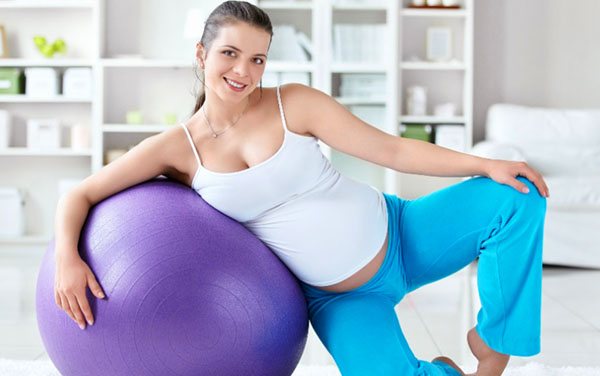
In addition, timely treatment in the early stages of the disease can save the expectant mother from its exacerbation caused by childbirth. After all, after giving birth, a mother will have a hard time even without pain: caring for a newborn baby takes almost all her energy and time. During this period, women have no time to treat their illnesses.
Also, if hemorrhoids make themselves felt in the early stages, then there is a high probability that the disease will turn into a big problem in the last weeks of pregnancy.
Contraindications to alternative treatment
It is not recommended to select folk remedies for the treatment of hemorrhoidal inflammation on your own; it is better to discuss this issue with an obstetrician-gynecologist. Products used in home treatment can provoke the development of allergic or adverse reactions, which can negatively affect pregnancy and the condition of the fetus. Folk remedies have a high therapeutic effect only against hemorrhoids at the initial stage of development; at later stages, traditional drug therapy is necessary.
In order not to look for effective traditional methods of treating hemorrhoidal inflammation for pregnant women, it is better to prevent the development of this pathological process. To do this, pregnant women are advised to move more, walk, and avoid long, monotonous and stationary positions. It is also important to adjust your diet to include foods with fiber, which normalizes stool and prevents constipation.
Treatment methods for hemorrhoids in pregnant women
A pregnant woman's body can react unpredictably to medications. Therefore, in order to treat hemorrhoids in pregnant women, the most gentle drugs possible are prescribed.
Drug therapy for hemorrhoids
To cure hemorrhoids in pregnant women, doctors prescribe rectal suppositories, which have anti-inflammatory, antiseptic and healing effects. Among such drugs are proctoglivenol, relief, hepatrombin, misvengal, and venitan. Attention: independent purchase and use of medications during pregnancy is strictly prohibited. Before starting treatment, consultation with a doctor is required. What drugs can be used in a particular case is decided by a specialist individually based on the overall clinical picture.
Treatment with folk remedies
Many people try to cure hemorrhoids during pregnancy on their own using folk remedies. Although the risk of developing allergic reactions to treatment with traditional methods is the same as to treatment with medications. Before trying a folk recipe on yourself, it is advisable to consult with your doctor. It is possible that some components will be contraindicated.
To relieve hemorrhoids, you can use sitz baths, lotions and washes with infusions of chamomile, calendula, nettle and plantain. These herbs, in the absence of allergies, can be used at any stage of pregnancy to prevent hemorrhoids and vaginal infections, as they have an anti-inflammatory and mild antiseptic effect.
It is important not only to know the cause of the disease, but also to diagnose and begin treatment in a timely manner. About this in the video:
Removal of hemorrhoids during pregnancy
It is possible to safely remove hemorrhoids during pregnancy.
To date, non-surgical methods have been developed. Such manipulations are performed under local anesthesia and are not dangerous to the fetus.
Sclerotherapy is one of the most popular methods. A drug is injected into the hemorrhoidal node, causing fusion of the vessel and the death of the node after some time.
Alloying – the base of the assembly is mechanically compressed by a ring made of medical latex. After some time, the vein closes and the painful node dies.
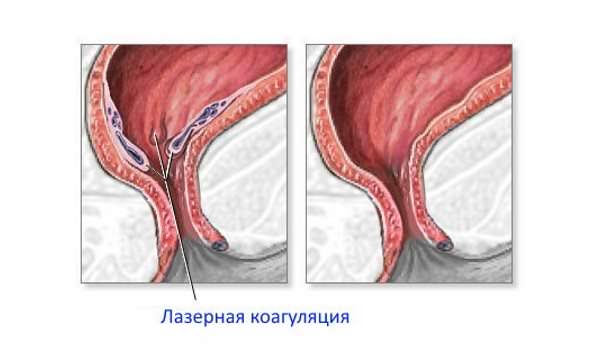
Laser coagulation - nodes are cauterized using a laser.
Hemorrhoids and pregnancy require conservative treatment, and only in difficult cases does the doctor prescribe removal of the nodes.
Surgical interventions are usually not performed on pregnant women. And if only surgical treatment is indicated, then drug therapy is carried out to alleviate the patient’s condition, and the removal of the nodes is postponed until childbirth.
How to relieve pain from hemorrhoids
How to relieve pain from hemorrhoids, because exacerbation of this disease sometimes brings painful sensations that can be unbearable.
A person has problems with bowel movements, he cannot sit, and movement also becomes painful.
Often, people with hemorrhoids are unable to properly perform their duties at work, which significantly affects their quality of life.
Causes of pain with hemorrhoids
According to medical statistics, hemorrhoids rank high in prevalence; more than half of people are familiar with this disease, and often not only by hearsay.
Experts say that among all diseases of the intestines, including the rectum, hemorrhoids occupy a leading position.
Most often, the development of a pathological situation occurs in middle-aged people who are fully able to work, however, cases of the disease occurring in young people and even children cannot be ruled out.
In most patients, hemorrhoids manifest themselves as prolonged intense pain, which intensifies many times during defecation due to the fact that most of the nerve receptors are located in the anus. The nature of the pain can be so severe that it can have an adverse effect on the psyche and slow down the recovery process.
The main reasons that can cause pain with hemorrhoids are inflammation and irritation of the mucous membrane in the rectum. As a result, it undergoes changes, becomes thinner and is easily injured when feces pass through it.
Such actions cause pain and non-healing cracks, which also become causes of pain. Trying to prevent pain, patients delay going to the toilet, which further aggravates the situation.
If emptying is not done in a timely manner, the stool becomes compacted and further injures the mucous membrane.
Severe pain can manifest itself when, as a result of inflammation on the mucous membrane, it thickens, swells and begins to compress the nerve endings and veins located in the hemorrhoids.
Relieving pain at home
The occurrence of severe attacks of pain forces us to look for ways to reduce it and thereby alleviate the condition during the acute course of the disease. The most important thing becomes a competent assessment of the patient’s condition and, based on this, choosing the right direction for further treatment. It is better not to endure even pain that is not too intense, but to try to alleviate it.
At home, you can use the following methods for this:
- To eliminate swelling and reduce inflammation, it is recommended to wash with cold water or make ice compresses. A piece of ice is wrapped in a cloth or bag and applied to the inflamed area for 10 minutes.
- Cold lotions with a decoction of medicinal herbs help eliminate inflammation, and therefore reduce pain. All plants that have anti-inflammatory properties, such as chamomile, nettle, calendula, plantain and much more, are suitable for this. The use of such compresses improves blood circulation, removes swelling and eliminates sphincter spasm.
- If the pain is not too intense, you can use baths with decoctions of medicinal plants.
- They use a lotion with aloe, as this plant has unique anti-inflammatory properties. The plant leaf is washed, cleared of thorns and the pulp is applied in a sterile napkin to the hemorrhoid area. The same can be done with raw potatoes.
- Cool washing will help relieve pain after defecation; experts strongly advise against using toilet paper in these cases. If for some reason it is impossible to do this or there are no suitable conditions, then it is necessary to use wet antibacterial wipes after each bowel movement.
Relieving pain symptoms from hemorrhoids at home using traditional methods is a very real task. However, if pain appears at a late stage in the development of the disease, it is most often possible to quickly eliminate it and alleviate the general condition only with the help of medications.
How to eliminate pain symptoms during pregnancy
Often women develop hemorrhoids in the second half of pregnancy, and if the disease is chronic, it worsens. This is caused by pressure on the veins from the increasing size of the uterus, as well as the movement of nearby internal organs.
During pregnancy, women experience changes in the nature of physiological processes, which leads to difficulties in bowel movements and constipation.
Against the background of this, hemorrhoids may develop, which, when inflamed, are accompanied by quite severe painful symptoms.
Statistics show that hemorrhoids occur in pregnant women in more than fifty percent of cases, but not all of them rush to seek help from doctors.
Attacks of pain can reach such intensity that a woman cannot tolerate them and is forced to resort to pain relief.
But during pregnancy, you should never use self-medication, since many medications are contraindicated for pregnant women and can harm them.
Most often, experts advise using harmless products containing natural ingredients to relieve pain and eliminate inflammation.
This could be Heparin ointment, Levomekol, Anestezol. A drug such as Ultraproct is used against cracks, to eliminate inflammation, and for thrombosis of hemorrhoidal veins. But, although it significantly alleviates the condition and reduces the painful symptoms of hemorrhoids, it is used only as prescribed by a doctor, not earlier than the second half of pregnancy.
To reduce the manifestations of pain during exacerbation of hemorrhoids in pregnant women, you can use completely harmless folk methods, such as ice suppositories, lotions with a cold decoction of medicinal herbs, etc.
How to get rid of pain after childbirth
Throughout pregnancy and childbirth, significant changes occur in a woman’s body; organs located in the pelvic region are subject to severe stress. Muscle tissue loses elasticity, and intestinal motility decreases. After childbirth, a woman needs to recover, and hemorrhoids weaken the body and prevent its recovery.
Recovery is hampered by a psychological state when women experience fear of pain. Not all medications are used to treat hemorrhoids and eliminate their symptoms, since during breastfeeding, when they enter the mother’s blood and milk, they can harm the baby.
When choosing drugs, the degree of development of the disease is taken into account. The onset of hemorrhoids, as a rule, is not accompanied by severe pain, so it can be eliminated using folk remedies at home. Suppositories or ointments, such as Proctosan or Proctosedyl, can quickly relieve pain.
If the disease has reached such a stage that the pain becomes unbearable due to prolapsed hemorrhoids, a woman after childbirth is most often recommended to use Methyluracil ointment or Aescusan in the form of drops. More severe cases of hemorrhoids must be subjected to more significant treatment methods, up to surgery, but they resort to it only to completely restore the mother’s body and not earlier than a month after birth.
Folk remedies for pain with hemorrhoids
It is necessary to firmly understand that any therapeutic methods cannot be used uncontrollably; they must be prescribed by a doctor. This also applies to the use of traditional recipes for the treatment of hemorrhoids. A pain symptom can be quickly eliminated only when the nature of the disease is precisely determined and, taking into account the exacerbation, the most effective methods are selected based on this.
Folk remedies recommended by a doctor are best used in combination with drug treatment, in this case a speedy recovery can be achieved.
The most popular folk remedies are medicinal plants in the form of decoctions, which are used in baths or as lotions.
However, for bleeding hemorrhoids and the development of a bacterial infection, sitz baths are not used.
Good help can be obtained from honey; this natural product has anti-inflammatory properties, quickly restores damage and removes swelling. For hemorrhoids, potato suppositories are used.
You can quickly relieve attacks of pain with warm poultices, but they can only be used if there is no bleeding.
Medicinal plants are used as poultices and applied warm to areas of inflammation.
What absolutely cannot be done
Almost all contraindications for hemorrhoids are physiological in nature and are based on eliminating the load on the located vessels that supply the pelvic organs.
The main thing that is contraindicated in case of hemorrhoids, and especially at the time of its exacerbation, is to self-medicate and refuse to consult a doctor.
Left unattended symptoms of hemorrhoids and independent selection of ointments or suppositories for its treatment can lead to a more severe development of the inflammatory process.
In order to alleviate the course of the disease and eliminate the possibility of exacerbation, it is necessary to make some changes to your usual life. It is better to give up alcohol and smoking, and not eat spicy and salty foods. Lifting weights and playing sports with weights is strictly prohibited.
You cannot use a motorcycle or bicycle as a means of transportation, especially over long distances and on bad roads. Wearing tight trousers or shapewear is not recommended, as such clothing interferes with the blood supply to the vessels.
It is forbidden to allow hypothermia of the legs and perianal area, to spend a long time on a soft chair, or to relax for a long time on the toilet.
By adhering to these recommendations, you can prevent severe complications of hemorrhoids in the form of pinched nodes, the appearance of cracks, and heavy bleeding, which, in turn, will relieve the symptoms of pain.
Feedback from our readers
Source: //1gem.ru/vopros-vrachu/kak-snyat-bol-pri-gemorroe.html
Prevention is easier than cure
Hemorrhoids and pregnancy: disease prevention. You can avoid exacerbation of hemorrhoids. Timely prevention gives good results. Measures such as diet, regular exercise, and good hygiene prevent the development of hemorrhoids.
Diet
Proper nutrition, rich in fiber and healthy foods, excluding spicy, smoked and fatty foods, is recommended for all pregnant women. And if an additional goal of the diet is to prevent exacerbation of hemorrhoids, then additional requirements are imposed on the diet. This diet is aimed at preventing constipation, so vegetables are offered for daily consumption: broccoli, beets, carrots, cauliflower, potatoes, cereals, pearl barley and oatmeal are especially useful. As well as prunes, dried apricots, raisins, honey and low-fat fermented milk products.
Charger

Physical exercise should be moderate and not cause a rush and stagnation of blood in the pelvic area. For example, it is advisable to avoid long walks and avoid sitting or standing for long periods of time. It is useful to do exercises from a lying position when the pelvis is in an elevated position.
Features of washing
After each act of defecation, it is necessary to wash. In this case, it is desirable that the water temperature be cool. After washing with warm water, you can simply rinse the anal area with cold water.
Timely prevention and a healthy lifestyle before pregnancy allows you to avoid many troubles during this difficult period for women.
But if during pregnancy women begin to suffer from any health problems, then consultation with their doctor is mandatory. It is possible to get rid of trouble easily and safely.
How to relieve hemorrhoid pain during pregnancy
According to statistical data, symptoms of varicose hemorrhoidal veins occur in the majority of expectant mothers.
Moreover, it is external hemorrhoids that are most often diagnosed during pregnancy - it occurs in almost 60% of all pregnant women who consult a proctologist. It is necessary to treat external hemorrhoids during pregnancy. Another thing is that not all therapeutic methods and drugs are allowed during this crucial period. That is why the expectant mother should consult a doctor to clarify the course of treatment.
Features of the pathology
As you know, in proctological practice it is customary to separate internal and external hemorrhoids. External hemorrhoids are said to exist if an abnormal process, characterized by varicose veins, affects external hemorrhoids.
External hemorrhoidal disease is not a complicated form of a rectal pathological process in which nodes fall out of the anus, but an independent disease
An increase in cavernous formations with external hemorrhoids occurs under the skin around the rectal sphincter. This is how they differ from prolapsed internal nodules, which are covered with a mucous membrane.
If hemorrhoids are not treated, the muscular apparatus of the anorectal area begins to weaken, as a result of which the nodules protrude even more, sag and prevent the pregnant woman from leading a normal lifestyle. There is a risk that the condition will only worsen during childbirth.
Causes of the disease
It should be understood that pregnancy itself is an absolutely natural and not a pathological condition. However, it is during pregnancy that changes will occur in the female body, which can lead to hemorrhoidal disease.
As in other categories of patients, in a pregnant woman the main cause of the development of the disease is impaired blood circulation in the veins of the cavernous formations located outside the rectum, due to congenital or acquired venous insufficiency.
As in other categories of patients, in a pregnant woman the main cause of the development of the disease is impaired blood circulation in the veins of the cavernous formations.
Due to impaired venous outflow, stagnation occurs, and the cavernous bodies begin to expand. Since the muscles are not designed for such a load, the nodules stand out more and more under the skin, which is noticeable when feeling the perineum.
External hemorrhoids do not occur in every pregnant woman. Even if there is a predisposition, pathology may not develop unless provoking factors come into play.
Experts consider the following factors to be the main “provocateurs”:
- Pressure of the uterus on the pelvic venous vessels. The growing fetus puts pressure on the blood vessels located in the pelvic circle, as a result of which the outflow of blood from the external cavernous formations is disrupted, stagnation and stretching of the hemorrhoids occurs.
The severity of these symptoms is influenced by the size of the child, so there is a certain pattern: the larger the uterine “sac”, the more pronounced the congestion is. Accordingly, difficulties often arise towards the end of pregnancy.
The growing fetus puts pressure on the blood vessels located in the pelvic circle.
- Difficulty with bowel movements. After conception, hormonal levels change to reduce the tone of the uterus. That is, natural protection against spontaneous abortion begins to work. However, at the same time, intestinal tone decreases, making it difficult to pass feces. Hard feces can also press on veins and injure the skin.
- Reduced physical activity. At the beginning of gestation, the vast majority of expectant mothers lead an active lifestyle, which is why hemorrhoidal disease appears infrequently in the first trimester. In subsequent trimesters, women move less and rest more. As a result, blood flow in the rectum and anorectal area slows down and nodules appear.
- Changing your diet. Many expectant mothers change their taste preferences. Women regularly want to try something that is not the healthiest: smoked foods, salty foods, spicy dishes. Such products provoke blood flow to the rectal venous collections. With constant use, stagnation occurs and, as a result, nodules.
How do external hemorrhoids manifest during pregnancy?
The initial signs of external hemorrhoidal disease are pain in the anorectal area. They can be caused by bowel movements, but usually occur completely spontaneously.
The initial signs of external hemorrhoidal disease are pain in the anorectal area.
Pain can be caused by prolonged stay in one position - sitting or standing. The pain intensifies with any action: coughing, sneezing, walking. The severity of painful sensations varies: from mild discomfort to excruciating pain.
In addition, pregnant patients note:
Bleeding with external hemorrhoidal disease occurs less frequently than with the rectal form of the disease. Bloody discharge does not occur in feces, but on underwear, napkins or towels after hygiene procedures.
The pregnant patient herself is able to feel small spherical formations in the area of the anal valve, which resemble lumps. They are usually characterized by pain.
With significantly enlarged nodules, patients feel a foreign object in the area of the anal canal. If the inflammatory process begins, the pain intensifies, and a fever may even appear.
The pregnant patient herself is able to feel small spherical formations in the area of the anal valve, which resemble lumps.
Possible complications
The most common complicated conditions in external hemorrhoidal disease are inflammation of the nodules and thrombosis, which often occur together.
Thrombosis of the venous vessels usually forms in one of the hemorrhoidal cones. A pregnant patient experiences excruciating pain that is independent of bowel movements.
During diagnosis, the nodule is noticeable blueness and swelling around it. If external hemorrhoids are not treated, the swelling begins to spread to the entire perianal area and ends in inflammation.
Exacerbation often occurs after eating salty, smoked foods.
Inflammation with external varicose hemorrhoidal veins usually goes through several stages:
- At the first stage, pain, itching and burning begin to intensify. Most often this occurs after bowel movements or after eating salty, smoked foods and marinades. The node is characterized by density and swelling.
- In the second, the symptoms increase, the skin around the nodule turns red, and swelling increases. It is impossible to examine the nodule by touch, since it is extremely painful.
- In the third case, inflammation spreads to the subcutaneous fat and nearby areas. The skin becomes purplish in color with pronounced cyanosis. When palpated, compaction is noticeable and necrotic areas can be detected.
An extensive inflammatory process can lead to the occurrence of perirectal abscess and pathological fistulas. Naturally, in such situations, emergency measures will be required, since pus and infection can pass through the placenta to the child.
Treatment of external hemorrhoids during pregnancy with medications
It is conservative therapy with the help of approved medications that is considered the safest way to get rid of the unfavorable symptoms of the external form of hemorrhoidal disease.
Treatment of hemorrhoids during the period of bearing a child must be carried out individually and under the supervision of qualified specialists - a proctologist and gynecologist.
It is the attending physician who will select the safest medications for the pregnant woman, taking into account contraindications.
It is the attending physician who will select the safest medications, taking into account contraindications, trimester of gestation and possible threats to the development and health of the fetus. That is, self-medication in such a situation is simply excluded.
For the treatment of external hemorrhoidal disease during pregnancy, external forms of drugs are most often used - ointments, creams and gels.
The following antihemorrhoidal drugs are most often prescribed during pregnancy:
- Fleming's ointment . The medication contains extracts of several medicinal plants (calendula, witch hazel, aesculus), which effectively relieves inflammation, swelling, and tones the venous walls. Zinc compounds dry out the damaged area, and menthol reduces the severity of pain.
- Bezornil. The drug, made according to the recipes of Chinese healers, is natural, safe and highly effective. It can be used by expectant mothers at all stages of pregnancy, the only exception being intolerance to any of the main or auxiliary ingredients.
- Posterized. The inactivated bacteria contained in the composition effectively stimulate local immunity, eliminate inflammatory processes, relieve pain, itching and burning.
- Heparin ointment. This drug can be used from the second trimester. The heparin (anticoagulant) it contains allows you to dissolve existing blood clots and prevent the formation of new thrombosed venous vessels. The anesthetic benzocaine additionally relieves pain and relieves itching.
- Hepatrombin. The main ingredients that ensure the effect of the drug are heparin, a hormonal component and lauromacrogol. The balanced composition allows you to fight blood clotting, thrombosis, inflammatory processes, and promotes sclerization of veins. Not recommended in the first trimester due to hormone content.
- Troxevasin. This medication belongs to the group of venotonics and angioprotectors. Application to external nodes helps reduce vascular fragility, reduce inflammation, prevent thrombosis, improve blood circulation in the veins and stop itching and burning sensations.
- Vishnevsky ointment for hemorrhoids. The natural ingredients contained in the preparation (birch tar, castor oil) can reduce the severity of negative symptoms. The ointment effectively fights inflammation and infection of hemorrhoids, and also promotes rapid tissue regeneration.
- Ointment Relief, Relief Advance. The shark liver oil contained in the drug provides anti-inflammatory, wound-healing, hemostatic, and anesthetic effects. Relief ointment additionally contains phenylephrine, which constricts blood vessels, and Relief Advance includes benzocaine, which reduces pain.
Source: //BoliGolovnie.ru/varikoz/kak-snjat-bol-gemorroja-pri-beremennosti.html
